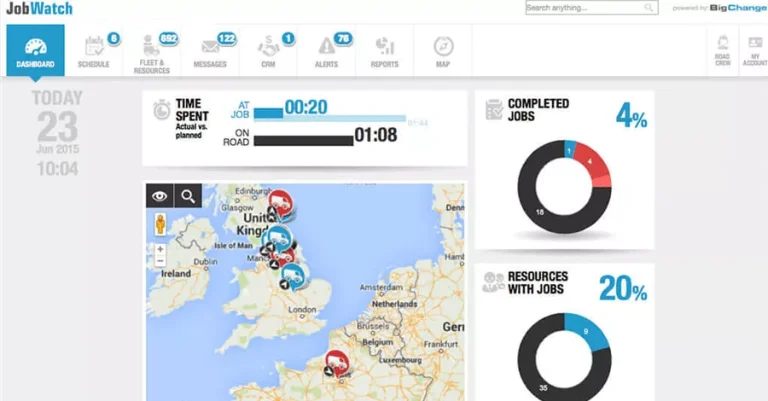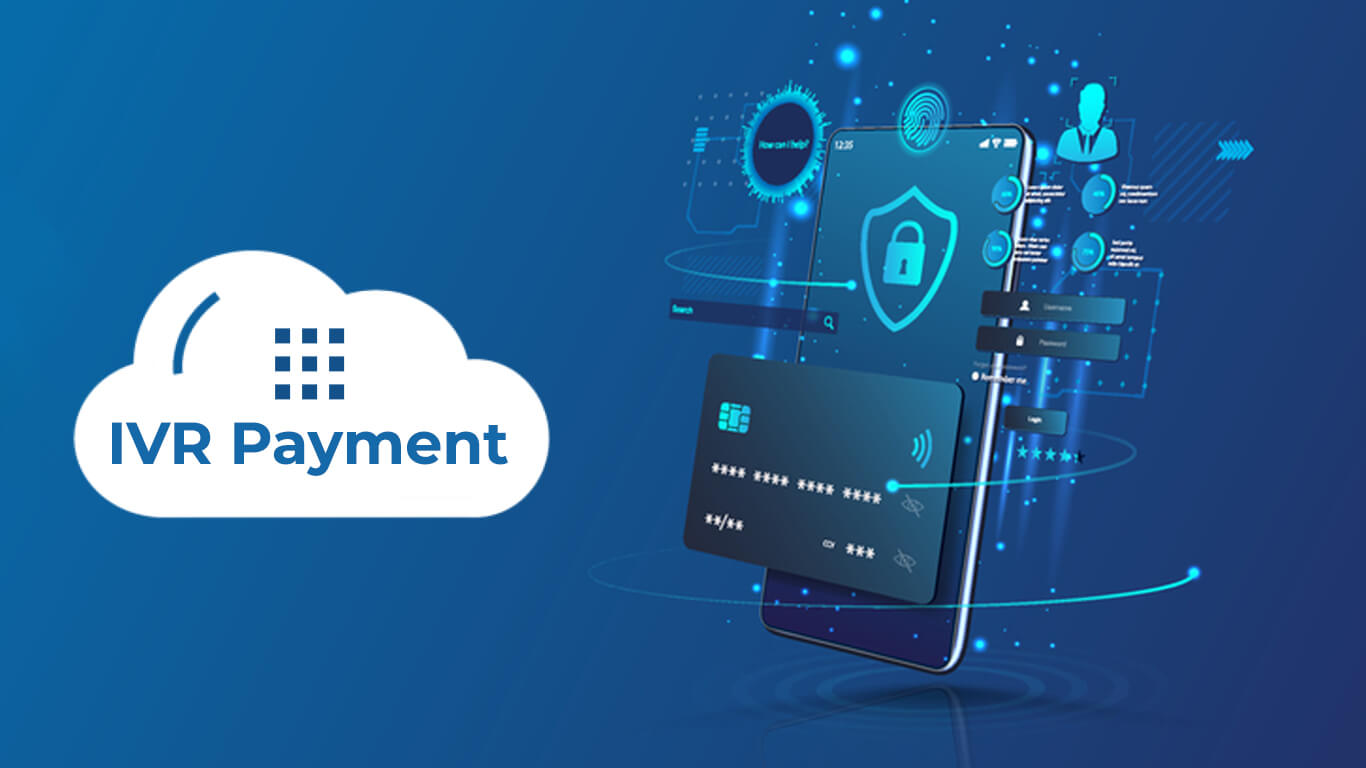Automate your sales, marketing, and service in one platform. Avoid data leaks and enable consistent messaging. Get started with your Jobwatch Telephony Integration today.
Get in Touch
Learn more detail about CRM Integration with your phone system from our expert team.
Application Information:
- Manufacturer:
- BigChange Apps Limited
- CRM:
- Jobwatch
- Market/Sector:
- Specialist
- Version:
Other Informations:
- Operation System:
- Windows
- Installation Option:
- Optional
- Product:

Supported Features (related to latest supported release)
- Address book search:
- Caller details preview:
- Manual screen pop:
- Click to dial via Sipdesk Integrator:
- Additional features:
- Click to dial via Go Integrator:
- Auto Screen Pop:
- Manual call activity logging:
- Automatic call activity logging:
- Integration with Notes:
Get in Touch
Learn more detail about CRM Integration with your phone system from our expert team.
Description
Overview of Jobwatch Telephony Integration
Jobwatch Telephony Integration is a powerful feature that seamlessly integrates telephony capabilities into the Jobwatch platform. It enables businesses to enhance their communication processes by integrating phone calls, call logging, and call recording directly within the Jobwatch system. By integrating telephony, companies can streamline their operations, improve efficiency, and deliver excellent customer service. Whether it’s dispatching jobs, scheduling appointments, or managing customer inquiries, Jobwatch Telephony Integration brings together the power of telephony and field service management in a unified solution.
Benefits of Telephony Integration in Jobwatch
The integration of telephony into the Jobwatch platform offers numerous benefits to businesses. Firstly, it enables seamless communication between clients, field workers, and office staff. By centralizing communication channels, important information can be easily relayed, reducing miscommunication and enhancing collaboration. Real-time call logging and recording further enhance transparency and accountability. Companies can keep track of customer interactions, review call recordings for quality assurance, and resolve any disputes or issues that may arise.
Moreover, Jobwatch Telephony Integration allows for integration with CRM systems. This integration empowers businesses with a holistic view of customer information and interaction history. With a comprehensive customer profile readily available, field workers can provide personalized service, access relevant job details, and address customer needs more efficiently. Additionally, the integration facilitates streamlined dispatch and scheduling processes. Incoming calls can be automatically routed to the appropriate department or field worker based on predefined rules, optimizing resource allocation and minimizing response times.
Features and Functionality
Jobwatch Telephony Integration offers a range of features and functionality to support efficient communication and seamless integration. It provides features such as call forwarding, call transfer, and call conferencing, allowing calls to be routed and managed effectively. Field workers can receive calls directly on their mobile devices, ensuring they stay connected even when they’re on the go. With automatic call logging, important call details are captured and associated with relevant job records, eliminating the need for manual data entry and reducing errors. Call recording functionality enables businesses to review conversations for quality assurance, training purposes, and dispute resolution.
Additionally, Jobwatch Telephony Integration supports integration with popular CRM systems, such as Salesforce or Microsoft Dynamics. This integration ensures that customer information is synchronized between Jobwatch and the CRM, providing a comprehensive view of customer interactions and history. Field workers can access customer details, notes, and past service records, enabling them to deliver personalized service and resolve issues effectively. The integration also facilitates the creation of new leads or opportunities directly from phone calls, empowering businesses to capitalize on potential sales opportunities and nurture customer relationships.
Seamless Communication with Clients and Field Workers
One of the key advantages of Jobwatch Telephony Integration is its ability to facilitate seamless communication between clients and field workers. When a customer places a call, the system automatically identifies and routes the call to the appropriate field worker based on predefined rules, ensuring prompt and efficient response. Field workers can receive job updates, task assignments, or customer instructions through the integrated telephony system, eliminating the need for manual phone calls or separate communication channels. This streamlined communication process minimizes delays, enhances productivity, and improves overall customer satisfaction.
Furthermore, Jobwatch Telephony Integration allows for real-time collaboration and instant updates between field workers and office staff. Whether it’s a change in job details, an urgent request from a customer, or an update on job progress, the telephony integration enables seamless and instant communication. Field workers can quickly report back to the office, update job statuses, and seek guidance or support as needed. This level of real-time communication enhances efficiency, reduces errors, and ensures that everyone involved in the job is on the same page. Ultimately, seamless communication with clients and field workers leads to faster response times, smoother workflows, and a higher level of service quality.
Real-Time Call Logging and Recording
Jobwatch Telephony Integration provides real-time call logging and recording capabilities, enabling businesses to maintain a comprehensive record of customer interactions. Each incoming or outgoing call is automatically logged within the Jobwatch system, capturing essential details such as call duration, time stamp, and caller information. This information serves as a valuable resource for analyzing call patterns, tracking response times, and evaluating customer service performance. By having a centralized repository of call data, businesses can generate reports and derive insights to optimize their operations, identify training needs, and make data-driven decisions to enhance customer experiences.
Additionally, the call recording feature offers an added layer of transparency and accountability. Calls can be recorded and securely stored within the Jobwatch system, allowing businesses to review them for quality assurance, dispute resolution, or training purposes. Supervisors or managers can listen to call recordings to ensure that service standards are met, identify areas for improvement, and provide constructive feedback to field workers. This feature is especially valuable in industries that require compliance with specific regulations or quality standards, as it helps ensure adherence to guidelines and best practices.
Integration with CRM Systems
Jobwatch Telephony Integration seamlessly integrates with Customer Relationship Management (CRM) systems, enabling businesses to leverage the power of unified customer data. By integrating telephony with CRM, companies gain a comprehensive view of customer information, interactions, and service history. When a call is received, the system can automatically search for the caller’s information within the CRM database and present a detailed customer profile to the field worker or customer service representative. This integration eliminates the need for manual data entry, saves time, and reduces the risk of errors.
The integration with CRM systems also allows for the synchronization of data between Jobwatch and the CRM platform. Updates made in one system, such as adding a note or updating a contact’s information, are reflected in real-time in the other system. This ensures that all customer data remains consistent and up-to-date across the organization. Field workers can access vital customer details, preferences, or specific instructions while on the job, empowering them to provide personalized service and address customer needs more effectively. This integration enhances customer satisfaction, streamlines workflows, and enables businesses to deliver a seamless end-to-end customer experience.
Streamlined Dispatch and Scheduling Processes
Jobwatch Telephony Integration plays a crucial role in streamlining dispatch and scheduling processes. When a call is received, the system can automatically identify the location, urgency, and required skillset for the job based on predefined rules. The call is then seamlessly routed to the appropriate field worker, ensuring efficient allocation of resources and minimizing response times. This automation eliminates the need for manual job assignments and reduces the risk of errors or delays. Field workers receive job details directly through the integrated telephony system, enabling them to quickly assess the requirements, access relevant information, and respond promptly to customer requests.
Furthermore, the integration enables dynamic scheduling adjustments in real time. When unforeseen circumstances arise or urgent jobs are received, the dispatcher can quickly assign or reassign tasks to field workers based on their availability, proximity, and skill set. Field workers can receive instant updates and notifications through the telephony system, allowing them to adapt their schedules and respond flexibly to changing priorities. This agility in dispatch and scheduling processes leads to optimized resource utilization, increased operational efficiency, and improved customer satisfaction by ensuring that the right field worker is assigned to the right job at the right time.
Improved Efficiency and Productivity
Jobwatch Telephony Integration significantly enhances efficiency and productivity within field service operations. By eliminating the need for manual communication processes, such as making separate phone calls or relying on paper-based systems, businesses can save valuable time and reduce administrative overhead. Field workers can directly receive and update job information through the integrated telephony system, enabling them to focus more on their core tasks and spend less time on administrative activities.
The real-time nature of the integration enables faster response times and reduces delays in communication. Field workers can quickly report job progress, request additional support or materials, and seek guidance from supervisors or office staff. This streamlined communication ensures that any issues or challenges can be addressed promptly, minimizing disruptions and enhancing overall productivity. Moreover, the integration provides a centralized platform for data management, allowing for easy access to customer information, job details, and historical records. Field workers can quickly retrieve and reference relevant data, empowering them to make informed decisions, provide accurate information to customers, and deliver efficient service.
Enhanced Customer Service and Satisfaction
Jobwatch Telephony Integration plays a vital role in delivering enhanced customer service and satisfaction. With the integration of telephony into the Jobwatch platform, businesses can provide a seamless and personalized experience for their customers. Incoming calls are automatically routed to the appropriate department or field worker, ensuring that customers reach the right person quickly and efficiently. This eliminates the frustration of being transferred multiple times or having to repeat information. Field workers can access customer details, service history, and job instructions during the call, enabling them to provide tailored and knowledgeable assistance to customers.
Moreover, the integration enables field workers to update job statuses, record notes, and capture important information in real-time. This means that all relevant data is readily available to office staff, allowing them to provide accurate and timely updates to customers. Additionally, the integration facilitates better appointment scheduling and tracking, reducing wait times and improving punctuality. Overall, Jobwatch Telephony Integration empowers businesses to deliver exceptional customer service, increase customer satisfaction levels, and build long-lasting relationships with their clients.
Advanced Reporting and Analytics
Jobwatch Telephony Integration provides advanced reporting and analytics capabilities that enable businesses to gain valuable insights into their telephony and field service operations. The system captures comprehensive data on call volumes, call durations, response times, and other key metrics. By analyzing this data, businesses can identify trends, patterns, and areas for improvement. They can measure performance against predefined service level agreements (SLAs) and set benchmarks for future goals. With access to detailed reports and analytics, organizations can make data-driven decisions to optimize their telephony processes, enhance resource allocation, and drive continuous improvement within their field service operations.
Furthermore, the integration allows businesses to assess the effectiveness of their customer service and training initiatives. Call recordings can be reviewed for quality assurance purposes, enabling supervisors to evaluate call-handling techniques, identify training needs, and provide targeted coaching to field workers. Additionally, analyzing call data and customer interactions can reveal valuable insights about customer preferences, pain points, and opportunities for upselling or cross-selling. This information can inform marketing and sales strategies, enabling businesses to tailor their offerings and improve customer engagement.
Security and Compliance Considerations
Jobwatch Telephony Integration places a strong emphasis on security and compliance to protect sensitive customer data and ensure adherence to industry regulations. The integration includes robust security measures to safeguard telephony communications and data transmission. Encryption protocols are employed to protect the confidentiality and integrity of calls and call recordings. Access controls and user permissions ensure that only authorized personnel can access sensitive information. Regular security audits and updates are conducted to address potential vulnerabilities and stay ahead of evolving security threats.
Furthermore, Jobwatch Telephony Integration enables businesses to meet compliance requirements in their respective industries. For example, in regulated sectors such as healthcare or finance, call recordings may be subject to specific retention periods and access restrictions. The integration provides tools to manage and enforce compliance with these regulations. Detailed audit trails and activity logs track user actions and changes made to call records, ensuring transparency and accountability. By prioritizing security and compliance, businesses can instill trust in their customers and demonstrate their commitment to data protection and regulatory compliance.
Integration Requirements and Compatibility
To ensure a successful implementation of Jobwatch Telephony Integration, it is important to consider the integration requirements and compatibility with existing systems. The integration typically requires a telephony service provider that supports the necessary protocols and APIs for seamless integration. It is essential to assess the compatibility of the telephony system with the Jobwatch platform to ensure smooth data exchange and functionality. Additionally, businesses need to evaluate the scalability and performance of the telephony infrastructure to handle the expected call volumes and support the growing needs of the organization.
Integration with existing systems, such as CRM platforms or other business applications, should also be considered. Compatibility between Jobwatch Telephony Integration and these systems enables the seamless flow of data and information across different platforms. It is important to verify the availability of integration connectors or APIs to ensure a robust and reliable integration process. Working closely with experienced integration specialists or consulting with the Jobwatch service provider can help businesses navigate the integration requirements and ensure a successful implementation that meets their specific needs.
Case Studies and Success Stories
Numerous case studies and success stories showcase the tangible benefits and positive impact of Jobwatch Telephony Integration across various industries. These real-world examples highlight how businesses have improved their operational efficiency, enhanced customer service, and achieved measurable results through integration. Case studies often include specific details about the challenges faced by organizations, the implementation process, and the outcomes achieved. By reviewing these case studies, businesses can gain valuable insights into the potential benefits and best practices associated with Jobwatch Telephony Integration, helping them make informed decisions and maximize their return on investment.
Implementation and Support Services
To ensure a successful implementation of Jobwatch Telephony Integration, businesses can leverage implementation and support services provided by the Jobwatch platform. The service provider typically offers assistance and guidance throughout the integration process, including requirements analysis, system configuration, and testing. They can help tailor the integration to meet the specific needs of the business and provide training to ensure that users understand the features and functionalities of the telephony integration. Ongoing technical support and maintenance services are also available to address any issues or challenges that may arise after the implementation.
Moreover, service providers may offer regular updates and new feature releases to enhance the functionality of Jobwatch Telephony Integration. Staying connected with the service provider’s support network and user community can provide access to valuable resources, such as knowledge bases, forums, and webinars, which can further support businesses in leveraging the full potential of the integration. By utilizing these implementation and support services, businesses can ensure a smooth integration process, receive timely assistance, and maximize the value of Jobwatch Telephony Integration within their operations.
Conclusion and Next Steps
In conclusion, Jobwatch Telephony Integration offers businesses a powerful solution to streamline their communication processes, enhance customer service, and improve operational efficiency. By seamlessly integrating telephony capabilities into the Jobwatch platform, businesses can benefit from features such as real-time call logging and recording, integration with CRM systems, streamlined dispatch and scheduling processes, improved efficiency, and advanced reporting and analytics. The integration empowers businesses to deliver personalized service, optimize resource allocation, and make data-driven decisions.
To take advantage of Jobwatch Telephony Integration, businesses can start by assessing their specific requirements and compatibility with existing systems. They can then engage with the Jobwatch platform provider to explore the implementation process, leverage support services, and ensure a successful integration. Case studies and success stories can serve as valuable references, providing insights into the benefits and best practices associated with the integration. By embracing Jobwatch Telephony Integration, businesses can transform their field service operations, enhance customer experiences, and gain a competitive edge in their industry.
In the next steps, businesses can reach out to the Jobwatch platform provider or consult with integration specialists to initiate the implementation process. They can discuss their specific needs, integration requirements, and desired outcomes to ensure a tailored solution. Collaboration between the business, the platform provider, and any other relevant stakeholders will be crucial to define the integration roadmap, configuring the system, and conducting thorough testing. Continuous monitoring, evaluation, and feedback will further refine the integration and drive ongoing improvements. With the support of Jobwatch Telephony Integration, businesses can optimize their field service management and deliver exceptional results.
FAQs
What is Jobwatch Telephony Integration?
Jobwatch Telephony Integration is a feature that seamlessly integrates telephony capabilities into the Jobwatch platform. It allows businesses to handle phone calls, log call details, and record conversations directly within the Jobwatch system, enhancing communication and streamlining field service operations.
What are the benefits of Jobwatch Telephony Integration?
Jobwatch Telephony Integration offers several benefits, including seamless communication with clients and field workers, real-time call logging and recording, integration with CRM systems, streamlined dispatch, and scheduling processes, improved efficiency and productivity, enhanced customer service and satisfaction, advanced reporting and analytics, and increased security and compliance.
How does Jobwatch Telephony Integration improve communication?
By integrating telephony capabilities, Jobwatch enables seamless communication between clients and field workers. Calls can be automatically routed to the appropriate department or field worker, ensuring quick and efficient response times. Field workers can receive job updates and customer instructions directly through the integrated telephony system, eliminating the need for manual phone calls or separate communication channels.
Can Jobwatch Telephony Integration record and log calls?
Yes, Jobwatch Telephony Integration allows for real-time call logging and recording. Each incoming or outgoing call is automatically logged within the Jobwatch system, capturing details such as call duration, time stamp, and caller information. Call recording functionality is also available to review conversations for quality assurance, training purposes, and dispute resolution.
Does Jobwatch Telephony Integration integrate with CRM systems?
Yes, Jobwatch Telephony Integration supports integration with popular CRM systems, such as Salesforce or Microsoft Dynamics. This integration allows for the synchronization of customer information, interaction history, and service records between Jobwatch and the CRM platform. Field workers can access customer details, notes, and past service records, enabling them to deliver personalized service and resolve issues efficiently.
What are the security measures in place for Jobwatch Telephony Integration?
Jobwatch Telephony Integration prioritizes security and compliance. The system employs encryption protocols to protect the confidentiality and integrity of calls and call recordings. Access controls and user permissions ensure that only authorized personnel can access sensitive information. Regular security audits and updates are conducted to address potential vulnerabilities and stay ahead of evolving security threats.
How can businesses implement Jobwatch Telephony Integration?
To implement Jobwatch Telephony Integration, businesses can work with the Jobwatch platform provider or integration specialists. They can assess compatibility with existing systems, define integration requirements, and engage in the implementation process. The platform provider typically offers support services, including configuration, training, and ongoing technical assistance to ensure a successful integration.
Can businesses access support and resources for Jobwatch Telephony Integration?
Yes, businesses can leverage support services provided by the Jobwatch platform provider. These services may include implementation assistance, training, and ongoing technical support. Additionally, the provider may offer updates, new feature releases, and access to resources such as knowledge bases, forums, and webinars to support businesses in maximizing the value of Jobwatch Telephony Integration.




